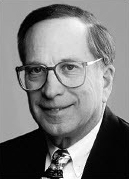
CEO pay is determined by a company’s board of directors. Those directors are compensated for the time they spend shaping the company’s strategy. Here’s what the Fortune 100 executives paid each other from 2008 to 2012.

Former Sen. Samuel A. Nunn (D-Ga.) served in the U.S. Senate from 1972 to 1997 and led the Armed Services Committee from 1987 to 1995.
Nunn's most significant legislative achievement was the Nunn-Lugar Cooperative Threat Reduction Program, written with Sen. Richard Lugar (R-Ind.), to secure and dismantle weapons of mass destruction in the former Soviet Union.
After retiring from the Senate, Nunn became a senior partner at the law firm King & Spalding and joined the boards of directors of a number of the firm’s clients, including Coca Cola, General Electric, Texaco (which merged with Chevron in 2001) and Scientific-Atlanta.
Nunn remains on Coca Cola and GE's boards. He left Chevron in 2011 and joined the board of Hess later that year. He has also served on the board of Dell since 1999. These companies paid Nunn a combined $4.8 million between 2008 and 2012.
Nunn has also served on the board of Internet Security Systems and is a senior advisor at RRE Ventures.
A conservative Democrat, Nunn was a co-founder of the Democratic Leadership Council and helped make permanent in 1993 the “don’t ask, don’t tell” policy that prohibited openly gay individuals from serving in the military. In 1992, Nunn confirmed to The New York Times that he fired two of his employees a decade earlier after he found out they were gay, explaining that the CIA and Department of Defense deemed their homosexuality a security risk. In 2008, Nunn called for a review of the "don't ask, don't tell" policy.
A persistent advocate for austerity in Washington, Nunn is a member of the steering committee at the Campaign to Fix the Debt, where he serves with Erskine Bowles, Honeywell CEO David Cote and former Sens. Alan Simpson (R-Wyo.) and Judd Gregg (R-N.H.). The group calls for Congress to decrease the federal deficit by cutting Social Security and Medicare.
While in the Senate, Nunn served on the advisory board of the Coalition for a Democratic Majority, a group of neoconservative Democrats which promoted the concept of "peace through strength," though he later was an early opponent of the first Gulf war.
Nunn has maintained a focus on international relations and foreign policy since leaving the Senate. He has served as the co-chairman and CEO of the Nuclear Threat Initiative since 2001 and as the chairman of the Center for Strategic & International Studies since 1999. He is a USA co-chairman of the Atlantic Partnership and serves on the advisory board of the Partnership for a Secure America and the National Bureau of Asian Research. He has also been an adviser to the Jamestown Foundation and the Special Operations Warrior Foundation.
Nunn, who served in the U.S. Coast Guard, received a bachelors and a law degree from Emory University. In 1991, he received the International Security Leadership Award and the Hessian Peace Prize. Nunn was inducted as a trustee by the state of Georgia in 2011. He serves as a distinguished professor at the Sam Nunn School of International Affairs at Georgia Tech. He is also a member of the Freemasons.
His daughter, Michelle Nunn, is running for the Democratic nomination for Senate in Georgia this year.
From January 2008 to December 2012, if you bought shares in companies when Samuel A. Nunn joined the board, and sold them when he left, you would have a 5.9 percent return on your investment, compared to a -2.8 percent return from the S&P 500.
Jan. 1, 1997 to July 26, 2016
Other board members at Coca-Cola during this time were Alexis M. Herman, Barry Diller, Cathleen P. Black and 14 more.
Jan. 1, 1997 to July 26, 2016
Other board members at General Electric during this time were Alan A.G. Lafley, Andrea Jung, Ann M. Fudge and 14 more.
Aug. 1, 2012 to May 16, 2013
Other board members at Hess during this time were Craig G. Matthews, Edith E. Holiday, Ernst H. von Metzsch and 6 more.
Dec. 1, 1999 to July 15, 2011
Other board members at Dell during this time were Alan A.G. Lafley, Alex J. Mandl, Donald J. Carty and 11 more.
Jan. 1, 1997 to May 25, 2011
Other board members at Chevron during this time were Carl Ware, Charles R. Shoemate, Charles T. Hagel and 14 more.
The Pay Pals project relies on financial research conducted by the Center for Economic Policy and Research.
Sources: Google Finance, Yahoo Finance, Dell SEC filings (2008, 2009, 2010, 2011), Chevron SEC filings (2011), Coca-Cola SEC filings (2008, 2009, 2010, 2011, 2012), General Electric SEC filings (2008, 2009, 2010, 2011, 2012), Hess SEC filings (2012).
By Shane Shifflett, Jay Boice, Hilary Fung and Aaron Bycoffe